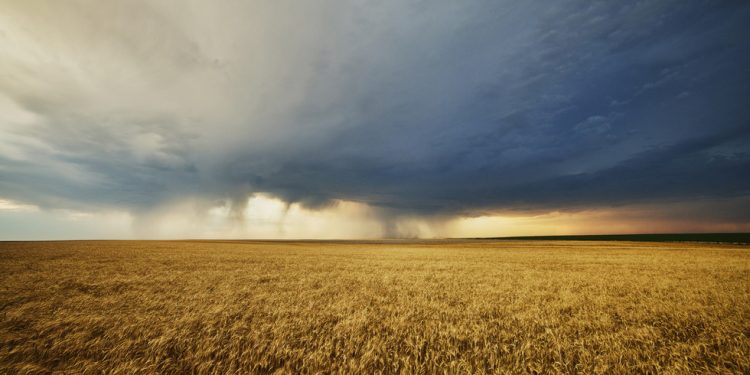Agencies-Gaza post
Global “wheat war” is coming: Experts
Wheat prices have risen to record highs over the past two months as significant producers such as Russia, Kazakhstan, and India halted exports to save their domestic markets. This has sparked fears of food insecurity and hunger around the world.
According to experts speaking to the Russian newspaper Izvestia, the price of wheat has increased by more than 60% since the beginning of the year. They say the spike was caused by the conflict between Russia and Ukraine, which provide nearly a third of world wheat exports.
In the 2021-2022 season, which started in July last year, Russian suppliers accounted for 16% of world wheat exports and Ukrainian producers for 10%. But due to the conflict, both countries banned wheat exports. In February, Russia restricted grain exports (wheat, rye, barley, and corn) outside the Eurasian Economic Union (EAEU) until June 30. Meanwhile, Ukraine has closed its only remaining port in Odesa.
Anti-Russia sanctions forced international companies to sever long-standing business ties and leave Russia, disrupting supplies. For example, the EU recently banned cooperation with the Black Sea trading port of Novorossiysk, through which more than half of exported grain is shipped.
Additionally, Kazakhstan followed Moscow’s decision to ban exports with its own restrictions, while India also halted exports of wheat earlier this month, stating that “The food security of India, neighboring and other vulnerable countries is at risk.”
Following the news from New Delhi, Chicago wheat futures rose 6% to $12.47 a bushel, its highest in two months. And the price of wheat in Europe hit an all-time high at around $461 per tonne.
The grain crisis is being felt around the world, but most severely in Africa, which relies for 90% on exports from the Black Sea region. Last month, UN Secretary-General António Guterres warned that one-fifth of humanity is at risk of poverty and hunger due to the current situation in the wheat market.
Western states have accused Russia of a “wheat war, Blame Moscow for the current crisis, but experts say that Russia is not solely responsible for the worsening of the crisis, or if it is, then not voluntarily. Russia has not banned exports but has introduced temporary tariffs and quotas to protect the internal market. As for Ukraine, under the guise of EU aid, its grain is actively being taken out of storage. The bloc’s top diplomat, Josep Borrell, recently stated: “Ukraine should be helped to continue producing and exporting grain and wheat‘, and since the Ukrainian camps are now full, ‘must be emptied to make room for a new harvest.”
Citing experts, Izvestia notes that Russia and Ukraine are not the only major global exporters of wheat. Other producers could save the world market from the crisis, such as the USA and Canada, which export about 25% of world exports with 26 and 25 million tons of wheat respectively. Other major western producers are France (19 million tons) and Germany (9.2 million tons). However, analysts say these countries are unlikely to share their grains with those in need and prioritize their own food security.
“Producing countries will have their own difficulties, mainly related to energy prices, production costs, and inflation, so it is likely that they will simply be too busy to take care of the countries that are being starved to death,” Nikolai Vavilov, Strategic Research Specialist at Total Research. is quoted as mentioned.
Another expert, head of analytics at research firm NTech, Daria Akimova, says these countries would want to keep their commodities to protect their economies from further inflation spikes.
“In order to protect themselves from hunger in the country and to reduce their own inflation, the producing countries try to hold on to raw materials. Because in the event of currency instability, and indeed any instability, it is always more profitable to have commodities than cash: it does not depreciate as quickly as cash” the newspaper reported, citing Akimova.
Experts largely do not predict how the situation in the wheat market will develop. On the one hand, according to Viktor Tunev, chief analyst at Ingosstrakh Investments, the problems with the supply of such a widespread commodity as wheat will most likely be solved by the new crop, as well as the restoration of supplies from Ukraine and Russia once the conflict is resolved.
On the other hand, it is unclear how long it will take to fix the conflict. Some specialists claim that Western states would ultimately be forced to ask Russia to share supplies in exchange for sanctions being lifted.
Source: HERE

















